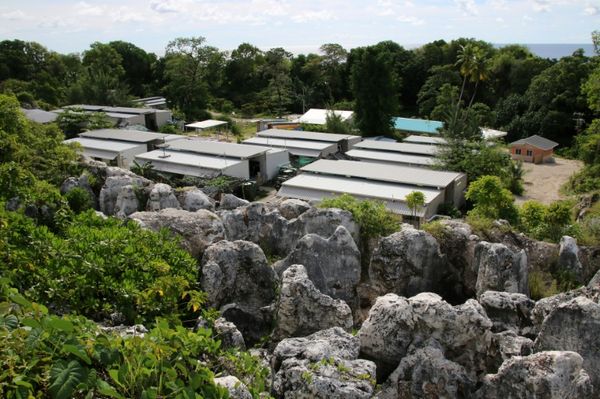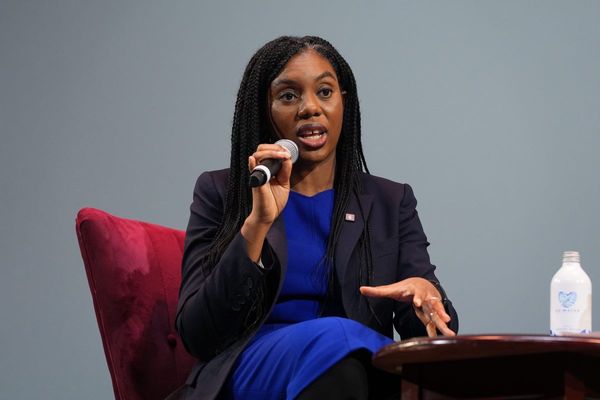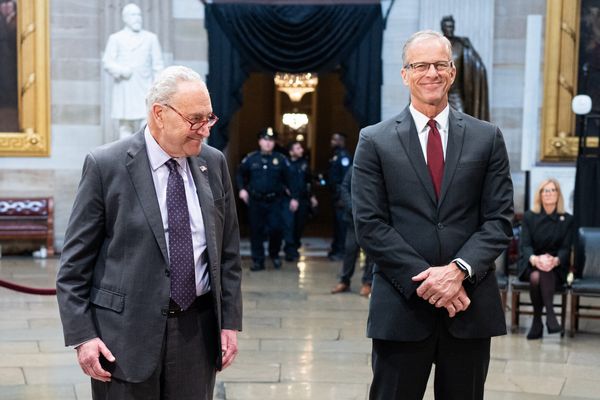
Kabul (AFP) - Two gunmen were shot dead in the Afghan capital Thursday near the site of a gathering by thousands of religious scholars called to endorse the Taliban's hardline Islamist rule.
Taliban officials said the two started firing from a rooftop near where the meeting was taking place, but were "quickly eliminated by Mujahideen with the help of Allah the Almighty".
Officials have provided scant details of the three-day men-only "jirga" -- a traditional gathering of clerics and influential people that settles differences by consensus -- and the media is also barred from attending.
Some speeches were broadcast on state radio -- with clerics calling for absolute loyalty to the Taliban's rule.
"Obedience is the most important principle of the system," Habibullah Haqqani, the head of the gathering, said in his opening remarks.
"We must obey all our leaders in all affairs, sincerely and truly."
It comes a week after a powerful earthquake struck the east of the country, killing over 1,000 people and leaving tens of thousands homeless.
Even before the quake, the Taliban were struggling to administer a country that had long been in the grip of economic malaise, utterly dependent on foreign aid that dried up with the overthrow of the Western-backed government in August 2021.
Officials from the United States were meeting senior Taliban leaders in Qatar Thursday for talks on unlocking some of Afghanistan's reserves, with Washington seeking ways to ensure the money goes to help the population rather than the Islamist group.
Criticism allowed
A Taliban source told AFP this week that criticism of the regime would be allowed at the jirga, and thorny issues such as girls' education -- which has divided opinion in the movement -- would be discussed.
But women would not be allowed to attend the gathering, with deputy Prime Minister Abdul Salam Hanafi telling state broadcaster RTA on Wednesday there was no need because they would be represented by male relatives.
"When their sons are in the gathering it means they are also involved," he said.
Taliban spokesman Zabihulla Mujahid told a press conference Thursday the decision to exclude women was made by the "ulema" -- the religious scholars.
"We are taking into consideration the needs or the thoughts and observations of them," he added.
Women's rights activist Razia Barakzai told AFP Hanafi's comments were "intolerable logic".
"Women should be part of the decisions about their fate," she said, adding: "Life has been taken away from Afghan women."
Since the Taliban's return, secondary school girls have been barred from education and women dismissed from government jobs, forbidden from travelling alone, and ordered to dress in clothing that covers everything but their faces.
They have also outlawed playing non-religious music, banned the portrayal of human figures in advertising, ordered TV channels to stop showing movies and soap operas featuring uncovered women, and told men they should dress in traditional garb and grow their beards.
'Behead enemies'
Mujahid said the scholars would give their opinion on whether teenage girls should be educated, then "it's up to the leadership (of the Taliban) to decide".
One leading cleric said Thursday anyone attempting to topple the Taliban regime should be beheaded.
"This (Taliban) flag has not been raised easily, and it will not be lowered easily," Mujib ur Rahman Ansari, the imam of Gazargah Mosque in Herat, told the gathering.
"All religious scholars from across Afghanistan should come to this conclusion...whoever commits the smallest act against our Islamic government should be beheaded."
Each of Afghanistan's more than 400 districts has provided three delegates to the meeting, while cities, religious groups and other organisations have also sent representatives, bringing the gathering to over 3,000 -- the biggest leadership collective since the Taliban returned to power.
Afghan media is abuzz with speculation that Taliban supreme leader Hibatullah Akhundzada -- who has not been filmed or photographed in public since the group returned to power -- may attend.
Only a handful of unverified audio recordings of his speeches have been released since August from Kandahar, the Taliban's birthplace and spiritual heart.







